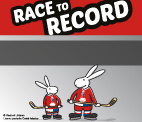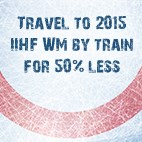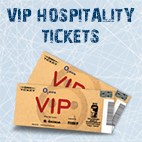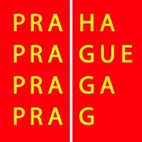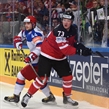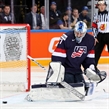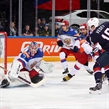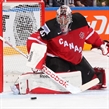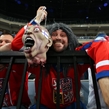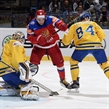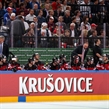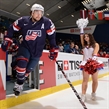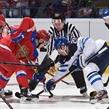Information
Tournament Format
The 16 teams are divided into two groups for the Preliminary Round.
The top-four ranked teams of each group advance to the quarter-finals that will be played cross-over. The first-place team in each preliminary-round group plays the fourth-place team of the other group, while the second-place team plays the third-place team of the other group. 1A-4B, 2A-3B, 1B-4A, 2B-3A. The winning teams advance to the semi-finals.
Semi-final pairings: Winner 1A-4B vs Winner 2B-3A, Winner 1B-4A vs Winner 2A-3B. Both semi-final games and the medal games will be played in Prague.
The winning teams of the semi-final games advance to the gold medal game while the semi-final losing teams play for bronze.
Relegation format
The overall bottom ranked two teams will be relegated to the 2016 IIHF Ice Hockey World Championship Division I Group A.
The teams promoted to the 2016 IIHF Ice Hockey World Championship will be the top-two teams of the 2015 IIHF Ice Hockey World Championship Division I Group A.
Final Ranking / World Ranking
The gold medal game and bronze medal game will determine the final ranking for the top-4 teams. The eliminated teams from the preliminary round plus the losing teams of the quarter-finals will be ranked following their positions in the groups preceding the quarter-final round.
The final ranking will follow the following procedure:
1. Higher position in the group,
2. Higher number of points,
3. Better goal difference,
4. Higher number of goals scored for,
5. Better seeding number
The IIHF World Ranking will be produced after the IIHF Ice Hockey World Championship. It is based on the rankings of the four most recent IIHF Ice Hockey World Championships and of the last Olympic men’s ice hockey tournament (including qualification tournaments).
Click here for more information on the IIHF World Ranking system.
Three Point System
For all games points shall be awarded as follows:
- 3 points for the winning team at the conclusion of regulation time
- 1 point for both teams at the conclusion of regulation time if the game is tied
- An additional point earned for the team winning the game in a 5-minute overtime period, or the Game Winning Shots Procedure if the teams are still tied following conclusion of the overtime period
- 0 points for the team losing the game in regulation time
Overtime Operations
If a game is tied at the end of regulation time, a five-minute overtime period shall be played immediately after an intermission of three minutes. The teams will change ends for the overtime period. The game will end when the five minutes has expired or when a goal is scored; the scoring team will be declared the winner. If no goal is scored in the overtime period then the Game Winning Shots Procedure will apply. All overtime periods of any IIHF game shall be played with each team at the numerical strength of four (4) skaters and one (1) goalkeeper.
Overtime procedure in Play-Off Games:
- In case of a tie at the conclusion of regulation time in a Relegation Playoff, Placement Playoff, Quarter Final, Semi Final and Bronze Medal Game, there will be a 10-minute sudden-death overtime period played, following a three-minute intermission.
- The teams will change ends for the overtime period.
- The team, which scores a goal during this period is the winner.
- In the Gold Medal game there will be a 20-minute sudden-death overtime period, following a 15-minute intermission during which the ice will be resurfaced.
- The teams will change ends.
- The team which scores a goal during this period is declared winner.
- If no goal is scored during the sudden-death overtime, there will be Game Winning Shot (GWS) competition ("shootout") according to the Game Winning Shots Procedure.
Game Winning Shots Procedure
If no goal is scored in the overtime period then the Game Winning Shots (GWS) procedure will apply. The following procedure will be utilized:
-
Shots will be taken at both ends of the ice surface. The 14-meter wide longitudinal centre section of the rink, between the Face-Off Spots in the neutral and end zones, will be dry-scraped by the ice-resurfacing machine prior to the Game Winning Shots during the time required to organize the program accordingly.
-
The procedure will begin with three different shooters from each team taking alternate shots. The players do not need to be named beforehand. Eligible to participate in the Game Winning Shots will be the four goalkeepers and all players from both teams listed on the official game sheet except as specified in article 3 below.
-
Any player whose penalty had not been completed when the overtime period ended is not eligible to be one of the players selected to take the shots and must remain in the penalty box or in the dressing room. Also players serving penalties imposed during the game winning shots must remain in the penalty box or in the dressing room until the end of the procedure.
-
The Referee will call the two captains to the Referee Crease and flip a coin to determine which team takes the first shot. The winner of the coin toss will have the choice whether his team will shoot first or second.
-
The goalkeepers shall defend the same goal as in the overtime period and may remain at their goal creases while the opposing team is taking a shot.
-
The goalkeepers from each team may be changed after each shot.
-
The shots will be taken in accordance with rule 509 of the IIHF Official Rule Book.
-
The players of both teams will take the shots alternately until a decisive goal is scored. The remaining shots will not be taken.
-
If the result is still tied after 3 shots by each team the procedure shall continue with a tie-break shoot-out by one player of each team, with the same or new players with the other team starting to take the tie-break shots. The same player can also be used for each shot by a team in the tie-break shoot-out. The game shall be finished as soon as a duel of two players brings the decisive result.
-
The Official Scorekeeper will record all shots taken, indicating the players, goalkeepers and goals scored.
-
Only the decisive goal will count in the result of the game. It shall be credited to the player who scored and to the goalkeeper concerned.
-
If a team declines to participate in the game winning shots procedure the game will be declared as a loss for that team and the other team will be awarded 3 points for a win. If a player declines to take a shot it will be declared "no score" for his team.
Tie breaking formula
The tie-breaking system for two teams with the same number of points in a standing will be the game between the two teams, the winner of the game taking precedence.
Due to the fact that the three-point system does not allow a game to end in a tie, then the following tie breaking procedure is applicable when three or more teams are tied in points in a Championship standing.
Should three or more teams be tied on points, then a tie breaking formula will be applied as follows, creating a sub-group amongst the tied teams. This process will continue until only two or none of the teams remain tied. In the case of two tied teams remaining, the game between the two would then be the determining tie-breaker as the game could not end as a tie. In the case of none of the teams being tied, the criteria specified in the respective step applies.
Step 1: Taking into consideration the games between each of the tied teams, a sub-group is created applying the points awarded in the direct games amongst the tied teams from which the teams are then ranked accordingly.
Step 2: Should three or more teams still remain tied in points then the better goal difference in the direct games amongst the tied teams will be decisive.
Step 3: Should three or more teams still remain tied in points and goal difference then the highest number of goals scored by these teams in their direct games will be decisive
Step 4: Should three or more teams still remain tied in points, goal difference and goals scored then the results between each of the three teams and the closest best-ranked team outside the sub-group will be applied. In this case the tied team with the best result (1. points, 2. goal difference, 3. more goals scored) against the closest best ranked-team will take precedence
Step 5: Should the teams still remain tied, then the results between each of the three teams and the next highest best-ranked team outside the sub-group will be applied.
Step 6: Should the teams still remain tied after these five steps have been exercised then Sport considerations will be applied and the teams will be ranked by their positions coming into the Championship (seeding).
Note: If not all mutual games have been played yet in an ongoing tournament, the tied teams will be ranked in the standings according to the following criteria: 1. Lower number of games played, 2. Goal difference, 3. Goals scored, 4. Positions coming into the Championship.
More information
Click here to download the IIHF’s Rule Book and Sport Regulations.
Player Entry
- The teams submit the names of the participating players at the first Championship Directorate.
- The maximum number of players allowed on a Team Registration Form at the beginning of the World Championship is 22 skaters and 3 goalies. The minimum is 15 skaters and 2 goalies.
- At the first Directorate meeting, the teams must name at least the minimum number of 15 skaters and 2 goalkeepers. The players entered must be present at the championship venue by the time of the Directorate meeting.
- The remaining players up to the allowed maximum of 22 + 3 must be submitted for players' control two hours before any of the following championship games. Players can be added throughout the tournament until the roster is full.
- During a game, a team may enter (dress) 20 skaters and 2 goalkeepers on the Official Game Sheet, with the emergency goalkeeper standing by if a goalie entered to the Official Game Sheet is unable to play.
Eligibility
To play in the IIHF World Championship, the Olympic ice hockey tournament and the qualifications to these competitions, players must fulfill the following qualification requirements:
- Each player must be under the jurisdiction of an IIHF member national association
- Each player must be a citizen of the country he represents.
Acquiring a new national eligibility (The ‘two-year’ case)
When a player has changed his citizenship or has acquired another citizenship and wants to participate for the first time in an IIHF competition representing his new country he must:
- Prove that he has participated for at least two consecutive hockey seasons and 16 consecutive months (480 days) in the national competitions of his new country after his 10th birthday during which period he has neither transferred to another country nor played ice hockey within any other country.
- Have an international transfer card (ITC) that shows the transfer to the national competition of his new country and which was approved and dated at least 16 months (480 days) prior to his proposed participation.
Change of national eligibility (The ‘four-year’ case)
A player, who has previously participated in IIHF competition, can switch national eligibility (but only once in a player's life) if:
- He is a citizen of the new country of his choice.
- He has participated for at least four consecutive years (1460 days) in the national competitions of his new country, during which period he has neither transferred to another country nor played ice hockey within any other country and has not played for his previous country in an IIHF competition during this four year period.
- He has an international transfer card (ITC) that shows the transfer to the national competition of his new country and which was approved and dated at least four years before the start of the IIHF competition in which he wishes to participate.
Czech Republic
An introduction in facts and figures about the Czech Republic.
Official Name: the Czech Republic
Total land area: 78,867 sq km
Population: 10,512 million
Capital: Prague
Other major cities:
Ostrava
Brno
Liberec
Pardubice
Plzen
Languages spoken: Czech
Currency: Czech crown (CZK)
The Czech Republic is in the heart of Europe, situated right in the middle of the continent. The Czech Republic shares common borders with Poland, Slovakia, Germany and Austria.
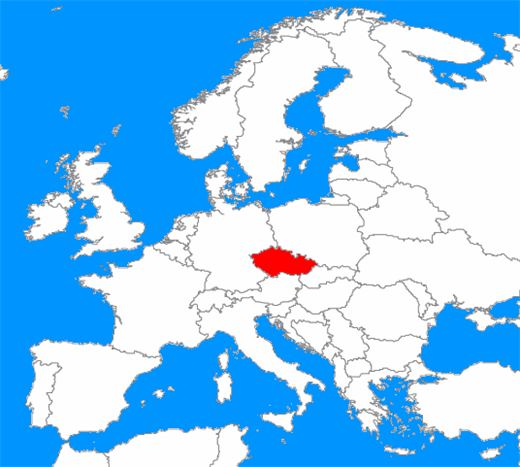
Prague
Prague is the capital and largest city of the Czech Republic. It is the 14th-largest city in the European Union. It is also the historical capital of Bohemia. Situated in the northwest of the country on the Vltava River, the city is home to about 1.3 million people, while its larger urban zone is estimated to have a population of nearly 2 million. The city has a temperate climate, with warm summers and chilly winters.
Prague has been a political, cultural, and economic centre of central Europe with waxing and waning fortunes during its 1,100-year existence. Founded during the Romanesque and flourishing by the Gothic and Renaissance eras, Prague was not only the capital of the Czech state, but also the seat of two Holy Roman Emperors and thus also the capital of the Holy Roman Empire. It was an important city to the Habsburg Monarchy and its Austro-Hungarian Empire and after World War I became the capital of Czechoslovakia. The city played major roles in the Protestant Reformation, the Thirty Years' War, and in 20th-century history, during both World Wars and the post-war Communist era.
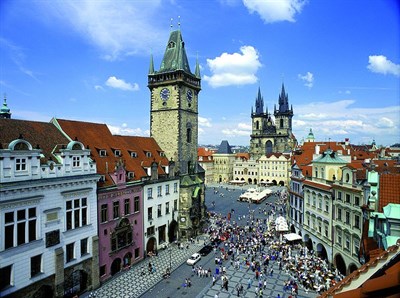
Prague is home to a number of famous cultural attractions, many of which survived the violence and destruction of 20th-century Europe. Main attractions include the Prague Castle, the Charles Bridge, Old Town Square, the Jewish Quarter, the Lennon Wall and Petrin Hill. Since 1992, the extensive historic centre of Prague has been included in the UNESCO list of World Heritage Sites. Prague is the capital of the Czech Republic, which used to be joined with Slovakia until the two separated into distinct sovereign states.
The city boasts more than 10 major museums along with numerous theatres, galleries, cinemas, and other historical exhibits. A modern public transportation system connects the city. Also, it is home to a wide range of public and private schools, including Charles University. Prague is classified as an Alpha- global city according to GaWC studies, comparable to Berlin, Rome and Houston. Its rich history makes it a popular tourist destination, and the city receives more than 4.4 million international visitors annually, as of 2011. In 2011, Prague was the sixth-most-visited city in Europe. Prague ranked fifth in the Tripadvisor world list of best destinations in 2014.
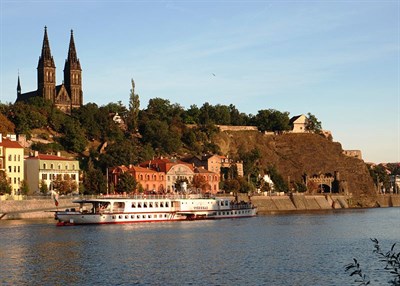
Website aimed on Sports in Prague: www.prahasportovni.cz
Culture
The city is traditionally one of the cultural centres of Europe, hosting many cultural events.
Some of the significant cultural institutions include the National Theatre (Narodni Divadlo) and the Estates Theatre (Stavovske or Tylovo or Nosticovo divadlo), where the premieres of Mozart's Don Giovanni and La clemenza di Tito were held. Other major cultural institutions are the Rudolfinum which is home to the Czech Philharmonic Orchestra and the Municipal House which is home to the Prague Symphony Orchestra. The Prague State Opera (Statni opera) performs at the Smetana Theatre.
The city has many world-class museums, including the National Museum (Narodni muzeum), the Museum of the Capital City of Prague, the Jewish Museum in Prague, the Alfons Mucha Museum, the African-Prague Museum, the Museum of Decorative Arts in Prague, the Naprstek Museum (Naprstkovo Muzeum), the Josef Sudek Gallery, the National Library and the National Gallery, which manages the largest collection of art in the Czech Republic.
There are hundreds of concert halls, galleries, cinemas and music clubs in the city. It hosts music festivals including the Prague Spring International Music Festival, the Prague Autumn International Music Festival, the Prague International Organ Festival and the Prague International Jazz Festival. Film festivals include the Febiofest, the One World Film Festival and Echoes of the Karlovy Vary International Film Festival. The city also hosts the Prague Writers' Festival, the Prague Folklore Days, Prague Advent Choral Meeting the Summer Shakespeare Festival, the Prague Fringe Festival, the World Roma Festival, as well as the hundreds of Vernissages and fashion shows.
Many films have been made at Barrandov Studios and at Prague Studios. Hollywood films set in Prague include Mission Impossible, xXx, Blade II, Alien vs. Predator, Doom, Chronicles of Narnia, Hellboy, Red Tails, Children of Dune and Van Helsing. Other Czech films shot in Prague include Empties, EuroTrip, Amadeus and The Fifth Horseman is Fear. Also, the romantic music video "Never tears us apart" by Inxs, "Diamonds from Sierra Leone" by Kanye West was shot in the city, and features shots of the Charles Bridge and the Astronomical Clock, among other famous landmarks. Rihanna's "Don't Stop the Music" video was filmed at Prague's Radost FX Club. The city was also the setting for the film Dungeons and Dragons in 2000. The music video "Silver and Cold" by AFI, an American rock band, was also filmed in Prague. Many Indian films have also been filmed in the city including Yuvraaj, Drona and Rockstar.
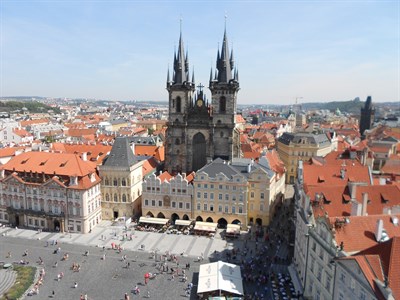
Museums
The National Museum
The National Museum is a Czech museum institution intended to systematically establish, prepare and publicly exhibit natural scientific and historical collections. It was founded 1818 in Prague by Kaspar Maria Sternberg. Historian Frantisek Palacky was also strongly involved.
At present the National Museum houses almost 14 million items from the area of natural history, history, arts, music and librarianship, located in tens of buildings.
Website: www.nm.cz
The Jewish Museum in Prague
The Jewish Museum in Prague is a museum of Jewish heritage located in Prague, Czech Republic and it was founded in 1906 by historian Dr. Hugo Lieben and Dr. Augustin Stein, who later became head of the Prague Jewish Community. The goal was to preserve artifacts from the Prague synagogues demolished during the Urban renewal of the old Jewish Quarter in the beginning of the 20th century.
In 1942, the communities were instructed to send the contents of their synagogues to the Jewish Museum in Prague, and, with a few exceptions, the Torah Scrolls, gold and silver and ritual textiles were sent to Prague, along with thousands of books. Artifacts were shipped to the museum from all the Jewish communities and synagogues of Bohemia and Moravia. The inventory of the Prague Jewish Museum expanded by fourteen times as a result, and a large number of Jews were put to work by the Germans to sort, catalogue and put into storage all the items that had come from over one hundred congregations in Bohemia and Moravia. It needed over forty warehouses, many of them deserted Prague synagogues, to store all these treasures.
Website: www.jewishmuseum.cz
Museum of Decorative Arts in Prague
Founded in 1885, the Prague Museum of Decorative Arts is housed in a Neo-Renaissance edifice built from 1897 to 1899 after the designs of architect Josef Schulz. It opened in 1900 and the Museum’s rich collections include decorative and applied arts and design work ranging from Late Antiquity to the present day with focus on European objects, particularly arts and crafts created in the Bohemian lands.
Website: www.upm.cz
Naprstek Museum
The Naprstek Museum is a museum of Asian, African and American art is one of several permanent exhibitions of National Muzeum at Bethlehem Square (Betlemske namesti) which is located in the compound of former brewery and wine-making U Halanku at the Old Town.
Originally private museum was founded in 1862 by Czech patriot, patron of the arts, politician and national revitalist Vojtech Naprstek in his former family brewery as Czech Industrial Muzeum which after his death became Ethnographic Museum and after WWII it has been focused on outside European cultures.
Website: www.nm.cz/Naprstek-Museum
Josef Sudek Gallery
The Josef Sudek Gallery is near Hradcany (Uvoz 24) in Prague, in a house where Josef Sudek (b. 1896 Kolin, d. 1976 Prague) lived from 1959 until his death. Part of his photographic output was transferred to the MDA in Prague in the years 1978–1988. Since 1989 the MDA in Prague has also administered his flat, where the gallery opened in 1995. Sudek had also a studio in Prague, Na Újezdu 28, which he continued to use for his photographic work (namely the darkroom) after moving to Hradčany, and where his sister and assistant Bozena Sudkova lived.
Clementinum
The Clementinum is a historic complex of buildings in Prague. Until recently the complex hosted the National, University and Technical libraries, the City Library also being located nearby on Marianske Namesti.
National Gallery in Prague
The National Gallery in Prague is a state-owned art gallery in Prague, which manages the largest collection of art in the Czech Republic. The collections of the gallery are not housed in a single building, but are presented in a number of historic structures within the city of Prague, as well as other places. The largest of the gallery sites is the Veletrzni Palac, which houses the National Gallery's collection of modern art.
Shopping
The quantity and quality of products available in the Czech Republic has improved dramatically since the early 1990s. The most prominent changes are noticeable in Prague where many new hypermarkets and shopping malls have appeared in the last several years. The increased competition and consumer demand have resulted in a better selection, improving customer service and lower prices, making shopping a more enjoyable activity.
Opening Hours
Stores outside of Prague tend to open at 8 or 9 a.m. (large grocery stores at 7 a.m.) and close at 6 or 7 p.m. Some stores are closed during lunch hours. The hours are shorter on Saturdays and most stores except large supermarkets are closed on Sundays.
Stores in the centre of Prague and in shopping malls have longer opening hours. Large supermarkets stay open until 8 or 10 p.m. and some are open 24 hours a day. Most stores in the Prague city centre and tourist locations are open on weekends.
- Palladium, Namesti Republiky 1
- Arkady Pankrac, Na Pankraci 86
- Novy Smichov, Plzenska 8
- Palac Flora, Vinohradska 144
- Myslbek Shopping Gallery, Na prikope 19/21
- Black Rose, Na prikope 12
- Slavic House, Na prikope 22
- Vinohrady Market Hall, Vinohradska 50
- Metropole Zlicin, Revnicka 1
Transportation
You can use Prague Public Transit for transportation in Prague. There are three subway lanes and many tram and bus lines. You can use those usually since 5:00 every day until midnight. Then there are few night bus lines as well, so the fans can move around Prague almost everytime.
The tickets for transportation are available at every machine and it applies for subway, tram and bus. The price is between 24 to 32 CZK, whole day ticket costs 110 CZK and three-day ticket can be bought for 310 CZK.
You can also use a taxi service in the city centre.
Emergency Phone Numbers
112 – Emergency Line
150 – Fire Brigade
155 – Ambulance
158 – Police
Ostrava
Ostrava is third-largest city and second-largest agglomeration in Czech Republic. It is home to about 300 000 people and it’s also an important industrial and university city.
Ostrava started as a small settlement, but its strategic placement on the Amber road contributed to its massive development in medieval age. Ostrava’s importance fell after the Thirty Years War, but rose again when huge amount of black coal was found in the Silesian part of the city. The first smelter was established shortly afterwards and in the 20th century Ostrava got its industrial look when it went through massive industrialization during the Communist era, giving the city the nickname "The Steel Heart of Czechoslovakia".
The Velvet Revolution meant a major change for the city. Most of the chemical and metallurgic industry was closed in the 1990s and Ostrava also begun with extensive investments into landscape re-cultivation and politics towards the environment. Now the city focuses more on mechanical engineering.
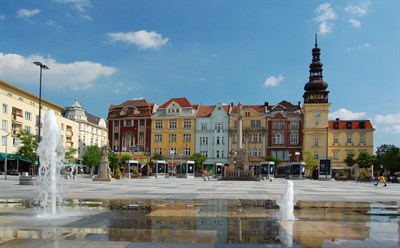
Culture
Ostrava is well-known for its nightlife, which is represented by Stodolni Street. The whole are actually includes several streets around Stodolni, in which 60 to 70 pubs, bars, restaurants and dance clubs, all with its own unique atmosphere, are concentrated. This brings thousands of tourists to the city centre every year.
Ostrava ran for the title European Capital City of Culture. However, it was another Czech city which got the title – Pilsen.
There are four theatres in Ostrava - the main and best-known is Moravian-Silesian National Theatre. The others are Petr Bezruč Theatre, Komorní scéna Aréna and Pupet Theatre. Ostrava is also home to the worldwide-known Janáček Philharmonic Orchestra and Janaček’s May – an international festival of classical music – is held every year. Every July, Ostrava hosts the international world music festival Colours of Ostrava, and every second year in August is the Ostrava Day of New Music.
The Ostrava Zoo was found in 1949 and now is home to more than 230 species of animals from all over the world.
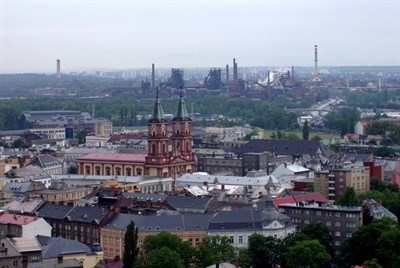
Transportation
Public transportation in Ostrava is provided by Dopravni Podnik Ostrava. The company operates 57 regular bus lines, 10 trolley bus and 17 streetcar lines, which means that the whole city is easily accessible via public transportation.
Ostrava is the third-largest city in the Czech Republic and also an important railway corridor. It has direct connections with Prague and easily connects with two major European cities – Warsaw and Vienna.
Leos Janacek Airport in Ostrava is one of the most important airports in the Czech Republic. It serves flights within the Czech Republic and also for international flights all over Europe.
Visitors can buy a public transportation ticket in Ostrava starting from 14 CZK.
You can also use taxi services in the city centre.
Website: www.dpo.cz
International Relations
The Consulate-General of the Republic of Poland and an honourary consulate of the Russian Federation can be found in Ostrava.
Emergency Phone Numbers
112 – Emergency Line
150 – Fire Brigade
155 – Ambulance
158 – Police
Arenas
The 2015 IIHF Ice Hockey World Championship will be held in Prague and Ostrava and played at two venues. Group A will be staged at the O2 Arena in Prague, while Group B will be played at the CEZ Arena in Ostrava.
O2 Arena
The first of the two arenas is the O2 Arena in Prague. It was officially opened in 2004 when the Czech Republic hosted its last World Championship. Back then 422,699 spectators watched games in this brand new multi-purpose arena. Moreover, this World Championship in Prague and Ostrava created and, until 2014, held the record for the highest attendance at any ice hockey World Championship.
During the NHL lock-out in 2012, 17 182 fans attended a game between Rytiri Kladno with Jaromír Jagr against Kometa Brno, which set the record for the highest single-game attendance in the Czech top division.
O2 Arena has also hosted games in the two best leagues in the world. It has hosted four NHL games -- two between New York Rangers and Tampa Bay Lightning in 2008 and two more between the Boston Bruins and Phoenix Coyotes in 2010. As well, it hosted several Lev Prague KHL home games over the past two seasons, including last year's finals between Lev and Metallurg Magnitogorsk, which were the three largest crowds in KHL history.
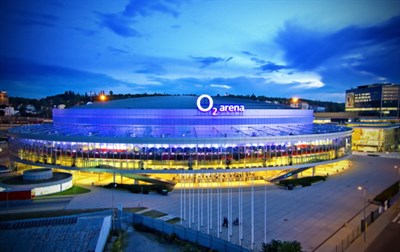
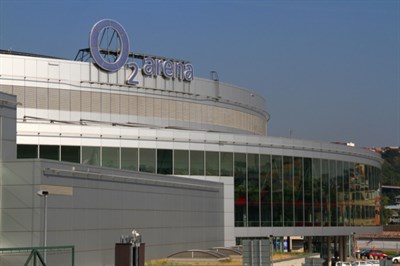
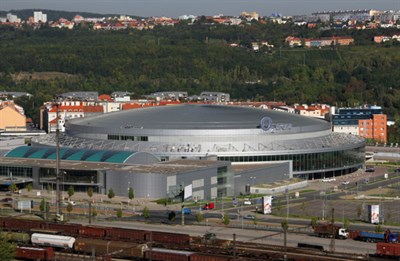
CEZ ARENA
Ostrava's arena was finished and officially opened in 1986. Since then, it has become an important centre for sport and culture in the region and has also held events on a national and international level as well.
In 2003 and 2004, the arena underwent a major renovation and was re-named CEZ Arena. It was officially re-opened on 6 April 2004 with a Jose Carreras concert.
HC Vitkovice Steel, a Champions Hockey League contender, plays its home games in the Czech Extraliga at CEZ Arena.
CEZ Arena is now one of the venues owned by the Vitkovice Arena Company. With a capacity of up to 12,500 spectators, depending on the event, it is one of the biggest indoor arenas in the Czech Republic.
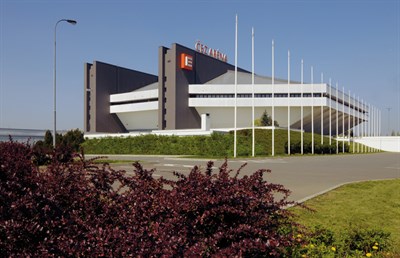
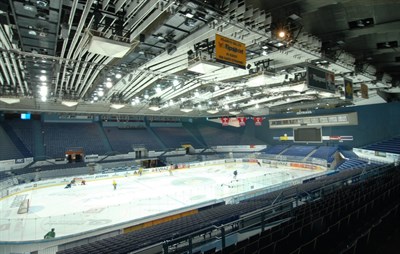
Tickets
The start of the 2015 IIHF Ice Hockey World Championship ticket sale is getting closer - the first stage begins on 4th November 2014 at 8:00 AM.
The start of the 2015 IIHF Ice Hockey World Championship ticket sale is getting closer - the first stage begins on 4th November 2014 at 8:00 AM.
Ticket packages will be available for sale via internet, on Sazka terminals and in both venues - O2 arena in Prague and CEZ Arena in Ostrava.
The Czech Republic will host the 2015 IIHF Ice Hockey World Championship from 1st to 17th May 2015.
The ticket prices for single preliminary round games range from CZK 190 (€ 7) to CZK 1,690 (€ 61). The quarter-final games are priced in two categories: CZK 2,390 (€ 86) and CZK 2,990 (€ 107).
The prices of tickets for the remaining playoff round games (O2 arena) are as follows: semi-finals - CZK 4,690 (€ 168) and CZK 5,790 (€ 208); bronze medal game CZK 4,290 (€ 154) and CZK 5,390 (€ 194); gold medal game CZK 7,190 (€ 258) and CZK 8,990 (€ 323). Note: The amounts in EUR are INDICATIVE only. Tickets must be paid in CZK.The official ticket seller is SAZKA TICKET. Tickets will be available worldwide via the official ticket seller online.
Only day packages will be available at the first stage of the ticket sales process, i.e. tickets for two or three games on the same day in a single arena. Scheduled to start during February, the second stage will also include the distribution of tickets for individual games - if still available at that time.
Fans in the Czech Republic can buy tickets at all Sazka terminals or via online order on the Sazka Ticket website. The number of tickets is limited - up to 5 packages to be purchased online (booking and payments at the terminals) or up to 10 packages in one order (in case of online payment by credit card).
Orders from abroad will be processed through Sazka Ticket's online system. Group orders - from the Czech Republic or from other countries - will be processed by the customer centre of the Sazka company through order forms available online at the Sazka Ticket website.
SALE CHANNELS AND THE TICKET PURCHASE POSSIBILITIES
SAZKA TICKET
Individual Orders
• In the Czech Republic
- sale points, Sazka terminals, O2 arena, CEZ Arena
Terminals: - cash payment
O2 arena and CEZ Arena: cash and card payments
- online at www.sazkaticket.cz
a) online booking, payment at the terminal
Maximum of 5 ticket packages in one booking (one price level)
b) online booking with immediate payment by credit card (tickets will be delivered or self-printed = e-ticket)
Maximum of 10 packages/one booking
• Outside the Czech Republic
- online
Booking online, payment by credit card (tickets will be delivered or self-printed = e-ticket)
Group Orders
• within the Czech Republic
- at the customer service centre through order form (will be available at the Sazka Ticket website under bookmark "Customer Care")
- payment via bank transfer, 3 days within the Czech Republic, 5 days from abroad
Hospitality Program
- 1st category tickets + hospitality program
- information at tickets@iihfworlds2015.com
Venues
O2 Arena, Prague
Seating capacity: 17,360
- 28 preliminary round games
- 2 quarter-final games
- 2 semi-final games
- bronze medal game
- gold medal game
CEZ ARENA, Ostrava
Seating capacity: 10,595
- 28 preliminary round games
- 2 quarter-final games
Ticket prices & sale stages
Download the whole brochure here.
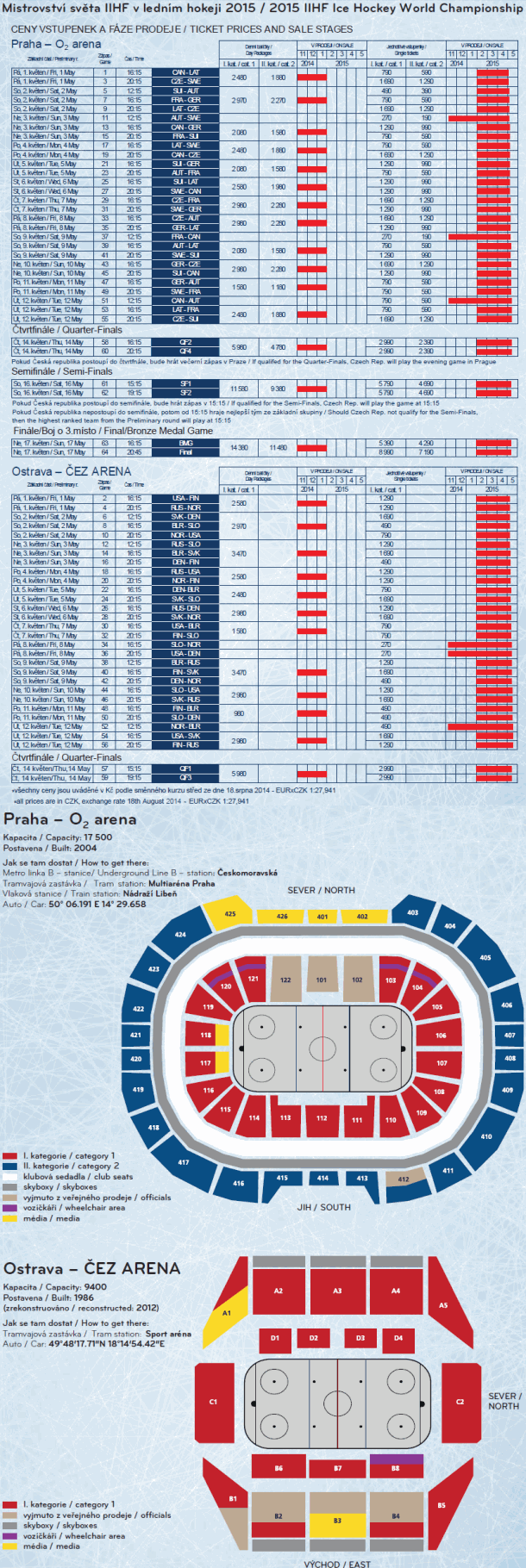
Arena Rules
Arena Opening
The Arena will be opened for visitors not later than 60 minutes before the start of each game.
Tickets
A ticket holder is not allowed to use his/her ticket for advertising and/or marketing purposes (e.g. organization of competitions and consumer lotteries). Against such conduct the organizer will undertake legal action.
The Organiser cannot guarantee the validity of tickets bought outside the Czech Ice Hockey Association and official ticket seller – SAZKA TICKET. Tickets cannot be resold. Please note that every child must have his/her own ticket.
Advertising and marketing activities in the arena
Unless granted by the Organiser, any advertising performance is prohibited, visitors are not allowed to conduct any business activities, distribute or sell newspapers, magazines, printed materials, advertising materials and/or objects of any kind inside the Arena and in its immediate vicinity. Offenders shall be ordered to leave the Arena and its immediate vicinity without any entitlement to a ticket refund or compensation. The organizer hereby does not renounce its right to take legal action against such acts.
Security checks at entrances and rules of conduct inside the arena
Security checks at entrances and rules of conduct inside the Arena are described in the Visitor´s guide and Arena Rules of Operation.
Special rules of access apply to visitors wearing pacemakers and wheel-chaired visitors.
Left-luggage lockers are available in front of the Arena.
Persons in quarantine and/or persons apparently suffering from fever are not allowed to enter the Arena.
Visitors are not allowed to stay in the Arena after the end of the game concerned, including visitors with tickets for the following game.
Prohibited items
Prohibited objects are specified in the Arena Rules of Operation.
The organizer also prohibits the entry with:
- fold-up umbrellas;
- cameras with tripods, professional photographic equipment and tele lens extensions;
- vuvuzelas and pressure horn
- drum which, due to its size, cannot be checked in the security x-ray machine;
- flags and banners whose size exceeds 5 x 3 m
- shafts, including telescopic ones
- security check at the entrance may extend the list of prohibited objects at its discretion.
For more information about arena rules and prohibited items (pictograms) click here.
Rules & Regulations Ostrava
The Visitors´ Rules and Regulations set out mandatory rules for the conduct of all persons entering the CEZ Arena and Fan Zone during the 2015 IIHF Ice Hockey World Championship that are available for viewing as a PDF.
Photography
Visitors are allowed to take photos (including the use of flash) only with mobile phones, tablets and cameras without tele lens extensions.
First aid
The Organiser provides a first aid service to visitors via visibly branded medical staff. Healthcare sites are properly identified and their locations are marked in the Arena's information board system.
Important telephone numbers
Information line 1188
Emergency calls 112
Police 158
Ambulance service 155
Fire Department 150
Hotels
Fans travelling to Prague can contact the company SIVEK HOTELS for accommodation requests during the 2015 IIHF Ice Hockey World Championship. Website: www.icehockey-2015.com
SIVEK HOTELS is a company with a long tradition in tourism. It provides high quality services to its clients and partners. In addition to the operation of favourite 3- and 4-star hotels in the centre of Prague and stylish restaurants, SIVEK HOTELS owns an incoming travel agency, which brings hundreds of thousands foreign clients to the Czech Republic annually.
The company had participated in a number of important events, which undoubtedly include the organization of the EASL Congress with 3500 participants and complete accommodation for the 2004 IIHF Ice Hockey World Championship; it organizes a traditional European Week of Quality and other major sport and social events as the provision of services for the Czech House in the Beijing's Gloria Plaza Hotel during the 2008 Summer Olympic Games.
“We are proud to become the Official Incoming Travel Partner for this Event and as such we are responsible to arrange the accommodation, board and congress services for the participants,” says Viliam Sivek, General Director and owner of the company.
Fans travelling in spring to the Czech Republic have a big choice of accommodation in hotels of all categories in both cities.
Kindly address your requirements to the e-mail address: accommodation@iihfworlds2015.com
Detailed information about media hotels in Prague can be found here.
Detailed information about media hotels in Ostrava can be found here.
| Contact persons: | ||
| Markéta Knollová | Pavlína Suchánková | |
| Accommodation Department Director | Accommodation Department Director (Ostrava) | |
| 2015 IIHF Ice Hockey World Championship | 2015 IIHF Ice Hockey World Championship | |
| Organizing Committee | Organizing Committee | |
| Mobile: 00420 724 983 956 | Mobile: 00420 607 044 057 |
Mascot
Bob and Bobek will accompany you to the 2015 IIHF Ice Hockey World Championship.
Bob and Bobek – two characters from a popular Czech animated television series for kids – will be wearing red jerseys during the 2015 IIHF Ice Hockey World Championship in Prague and Ostrava. The organizing committee chose a pair of mascots, which it felt could be interesting for fans.
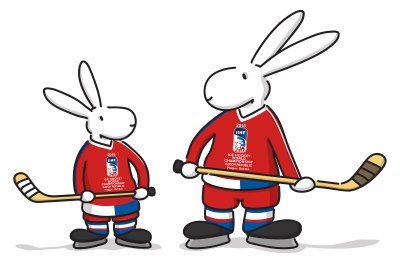
The organizers wanted the tournament's mascot to represent the Czech Republic and to be well known among the home crowd.
Bob and Bobek are the two main characters in a famous Czech children's series about two rabbits who live in a magician’s hat. It first appeared on TV screens in former Czechoslovakia in 1979. The author is Vladimir Jiranek, a well-known artist, illustrator, painter and director of animated movies. The "hockey appearance" of Bob and Bobek for the World Championship will be designed by artist and stage designer Alex Dowis.
The organizers also see a symbolism in using two characters instead of one. The tournament will be played in two cities. Even though there are some differences between Prague and Ostrava, they will stand together to reach a common goal, just as Bob and Bobek do in the popular series. Bob and Bobek also appeared as hockey players in one of their episodes.
Character description:
Bob and Bobek are two rabbits who live in a magician’s hat. Bob is the bigger and smarter one, who often plays more of a parenting role in the pair. Bobek is the smaller, more fearful one, but also the more imaginative one, who often fulfils the role of a child. Both original ideas, which often puts them into trouble with a comic plot. The characters have good moral standards.
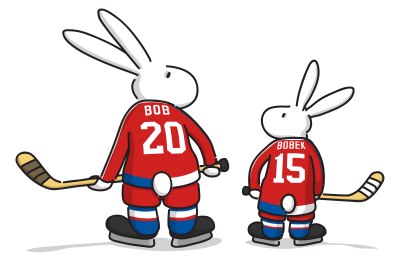
TV Listings
The 2015 IIHF Ice Hockey World Championship will be broadcast in 160 countries and territories.
Click here for the list of broadcasters.
Adding visibility in territories where no or no conflicting media rights agreements are in place, a high quality live video streaming service will be offered online on the event's YouTube channel.
World Ranking
The IIHF World Ranking is a tool to reflect the long-term quality of the countries' national team programs, taking into consideration the results over four years. It is used to determine the seeding in the IIHF Ice Hockey World Championship as well as to determine the seeding and which teams are automatically qualified for Olympic Winter Games.
The 2015 IIHF Men's World Ranking will determine the seeding of the 2018 Olympic Winter Games in PyeongChang 2018. The top-8 ranked team of the final 2015 IIHF Men's World Ranking (determined after the 2015 IIHF Ice Hockey World Championship) as well as host Korea will be automatically qualified for the 2018 Olympic men's ice hockey tournament. The three remaining spots will be determined in the Olympic Qualification played between November 2015 and September 2016. The teams ranked 9-11 will have the right to host the three Final Olympic Qualification groups.
Click here for more information on the IIHF World Ranking system.
2015 IIHF Men's World Ranking
| Points | Movement | ||||
| 1 | Canada | 3690 | +3 | ||
| 2 | Russia | 3675 | +1 | ||
| 3 | Sweden | 3630 | -2 | ||
| 4 | Finland | 3575 | -2 | ||
| 5 | USA | 3540 | +1 | ||
| 6 | Czech Republic | 3495 | -1 | ||
| 7 | Switzerland | 3235 | 0 | ||
| 8 | Slovakia | 3160 | 0 | ||
| 9 | Belarus | 3075 | +2 | ||
| 10 | Latvia | 3015 | -1 | ||
| 11 | Norway | 2990 | -1 | ||
| 12 | France | 2930 | 0 | ||
| 13 | Germany | 2920 | 0 | ||
| 14 | Slovenia | 2795 | 0 | ||
| 15 | Denmark | 2775 | 0 | ||
| 16 | Austria | 2745 | 0 | ||
| 17 | Kazakhstan | 2680 | 0 | ||
| 18 | Italy | 2565 | 0 | ||
| 19 | Hungary | 2415 | 0 | ||
| 20 | Japan | 2345 | +1 | ||
| 21 | Ukraine | 2310 | -1 | ||
| 22 | Poland | 2275 | +2 | ||
| 23 | Korea | 2230 | 0 | ||
| 24 | Great Britain | 2225 | -2 | ||
| 25 | Netherlands | 2065 | 0 | ||
| 26 | Lithuania | 2035 | 0 | ||
| 27 | Croatia | 1930 | +1 | ||
| 28 | Romania | 1895 | -1 | ||
| 29 | Estonia | 1870 | 0 | ||
| 30 | Serbia | 1645 | +1 | ||
| 31 | Spain | 1645 | -1 | ||
| 32 | Mexico | 1400 | +1 | ||
| 33 | Israel | 1375 | -1 | ||
| 34 | Belgium | 1280 | +2 | ||
| 35 | Iceland | 1270 | 0 | ||
| 36 | Australia | 1230 | -2 | ||
| 37 | New Zealand | 1045 | 0 | ||
| 38 | China | 1020 | 0 | ||
| 39 | Bulgaria | 890 | 0 | ||
| 40 | South Africa | 855 | 0 | ||
| 41 | Turkey | 815 | 0 | ||
| 42 | DPR Korea | 770 | +1 | ||
| 43 | Luxembourg | 700 | -1 | ||
| 44 | United Arab Emirates | 510 | +1 | ||
| 45 | Georgia | 495 | +2 | ||
| 46 | Hong Kong | 455 | +2 | ||
| 47 | Bosnia and Herzegovina | 200 | new | ||
| 48 | Ireland | 195 | -4 | ||
| 49 | Greece | 180 | -3 | ||
| 50 | Mongolia | 155 | -2 |
Past Medallists
| IIHF Ice Hockey World Championships | ||||
| Year | Gold | Silver | Bronze | Venue |
| 1920 | Canada | USA | Czechoslovakia | Antwerp (Olympics) |
| 1924 | Canada | USA | Great Britain | Chamonix (Olympics) |
| 1928 | Canada | Sweden | Switzerland | St. Moritz (Olympics) |
| 1930 | Canada | Germany | Switzerland | Chamonix, Berlin, Vienna |
| 1931 | Canada | USA | Austria | Krynica |
| 1932 | Canada | USA | Germany | Lake Placid (Olympics) |
| 1933 | USA | Canada | Czechoslovakia | Prague |
| 1934 | Canada | USA | Germany | Milan |
| 1935 | Canada | Switzerland | Great Britain | Davos |
| 1936 | Great Britain | Canada | USA | Garmisch-Partenkirchen (Olympics) |
| 1937 | Canada | Great Britain | Switzerland | London |
| 1938 | Canada | Great Britain | Czechoslovakia | Prague |
| 1939 | Canada | USA | Switzerland | Basle, Zurich |
| 1940-1946 No championships (World War II) | ||||
| 1947 | Czechoslovakia | Sweden | Austria | Prague |
| 1948 | Canada | Czechoslovakia | Switzerland | St. Moritz (Olympics) |
| 1949 | Czechoslovakia | Canada | USA | Stockholm |
| 1950 | Canada | USA | Switzerland | London |
| 1951 | Canada | Sweden | Switzerland | Paris |
| 1952 | Canada | USA | Sweden | Oslo (Olympics) |
| 1953 | Sweden | FR Germany | Switzerland | Zurich, Basle |
| 1954 | Soviet Union | Canada | Sweden | Stockholm |
| 1955 | Canada | Soviet Union | Czechoslovakia | Krefeld, Dortmund, Cologne |
| 1956 | Soviet Union | USA | Canada | Cortina (Olympics) |
| 1957 | Sweden | Soviet Union | Czechoslovakia | Moscow |
| 1958 | Canada | Soviet Union | Sweden | Oslo |
| 1959 | Canada | Soviet Union | Czechoslovakia | Prague, Bratislava |
| 1960 | USA | Canada | Soviet Union | Squaw Valley (Olympics) |
| 1961 | Canada | Czechoslovakia | Soviet Union | Geneva, Lausanne |
| 1962 | Sweden | Canada | USA | Colorado Springs, Denver |
| 1963 | Soviet Union | Sweden | Czechoslovakia | Stockholm |
| 1964 | Soviet Union | Sweden | Czechoslovakia | Innsbruck (Olympics) |
| 1965 | Soviet Union | Czechoslovakia | Sweden | Tampere |
| 1966 | Soviet Union | Czechoslovakia | Canada | Ljubljana |
| 1967 | Soviet Union | Sweden | Canada | Vienna |
| 1968 | Soviet Union | Czechoslovakia | Canada | Grenoble (Olympics) |
| 1969 | Soviet Union | Sweden | Czechoslovakia | Stockholm |
| 1970 | Soviet Union | Sweden | Czechoslovakia | Stockholm |
| 1971 | Soviet Union | Czechoslovakia | Sweden | Berne, Geneva |
| 1972 | Czechoslovakia | Soviet Union | Sweden | Prague |
| 1973 | Soviet Union | Sweden | Czechoslovakia | Moscow |
| 1974 | Soviet Union | Czechoslovakia | Sweden | Helsinki |
| 1975 | Soviet Union | Czechoslovakia | Sweden | Munich, Dusseldorf |
| 1976 | Czechoslovakia | Soviet Union | Sweden | Katowice |
| 1977 | Czechoslovakia | Sweden | Soviet Union | Vienna |
| 1978 | Soviet Union | Czechoslovakia | Canada | Prague |
| 1979 | Soviet Union | Czechoslovakia | Sweden | Moscow |
| 1981 | Soviet Union | Sweden | Czechoslovakia | Gothenburg, Stockholm |
| 1982 | Soviet Union | Czechoslovakia | Canada | Helsinki, Tampere |
| 1983 | Soviet Union | Czechoslovakia | Canada | Dusseldorf, Dortmund, Munich |
| 1985 | Czechoslovakia | Canada | Soviet Union | Prague |
| 1986 | Soviet Union | Sweden | Canada | Moscow |
| 1987 | Sweden | Soviet Union | Czechoslovakia | Vienna |
| 1989 | Soviet Union | Canada | Czechoslovakia | Stockholm, Sodertalje |
| 1990 | Soviet Union | Sweden | Czechoslovakia | Berne, Fribourg |
| 1991 | Sweden | Canada | Soviet Union | Turku, Helsinki, Tampere |
| 1992 | Sweden | Finland | Czechoslovakia | Prague, Bratislava |
| 1993 | Russia | Sweden | Czech Republic | Dortmund, Munich |
| 1994 | Canada | Finland | Sweden | Bolzano, Canazei, Milan |
| 1995 | Finland | Sweden | Canada | Stockholm, Gavle |
| 1996 | Czech Republic | Canada | USA | Vienna |
| 1997 | Canada | Sweden | Czech Republic | Helsinki, Turku, Tampere |
| 1998 | Sweden | Finland | Czech Republic | Zurich, Basle |
| 1999 | Czech Republic | Finland | Sweden | Oslo, Lillehammer, Hamar |
| 2000 | Czech Republic | Slovakia | Finland | St. Petersburg |
| 2001 | Czech Republic | Finland | Sweden | Cologne, Hanover, Nuremberg |
| 2002 | Slovakia | Russia | Sweden | Gothenburg, Karlstad, Jonkoping |
| 2003 | Canada | Sweden | Slovakia | Helsinki, Turku, Tampere |
| 2004 | Canada | Sweden | USA | Prague, Ostrava |
| 2005 | Czech Republic | Canada | Russia | Vienna, Innsbruck |
| 2006 | Sweden | Czech Republic | Finland | Riga |
| 2007 | Canada | Finland | Russia | Moscow, Mytishi |
| 2008 | Russia | Canada | Finland | Quebec City, Halifax |
| 2009 | Russia | Canada | Sweden | Berne, Zurich-Kloten |
| 2010 | Czech Republic | Russia | Sweden | Cologne, Mannheim, Gelsenkirchen |
| 2011 | Finland | Sweden | Czech Republic | Bratislava, Kosice |
| 2012 | Russia | Slovakia | Czech Republic | Helsinki, Stockholm |
| 2013 | Sweden | Switzerland | USA | Stockholm, Helsinki |
| 2014 | Russia | Finland | Sweden | Minsk, Belarus |
|
Notes: |
||||
| All Olympic Ice Hockey Tournaments between 1920 and 1968 also counted as World Championships. | ||||
| In the Olympic years 1980, 1984 and 1988, no IIHF World Championships were staged. | ||||
| IIHF Ice Hockey European Championships | ||||
| Year | Gold | Silver | Bronze | Venue |
| 1910 | Great Britain | Germany | Belgium | Les Avants |
| 1911 | Bohemia | Germany | Belgium | Berlin |
| 1912 | Championship annulled | |||
| 1913 | Belgium | Bohemia | Germany | Munich |
| 1914 | Bohemia | Germany | Belgium | Berlin |
| 1915-1920 No championships (World War I) | ||||
| 1921 | Sweden | Czechoslovakia | (only two teams) | Stockholm |
| 1922 | Czechoslovakia | Sweden | Switzerland | St. Moritz |
| 1923 | Sweden | France | Czechoslovakia | Antwerp |
| 1924 | France | Sweden | Switzerland | Milan |
| 1925 | Czechoslovakia | Austria | Switzerland | Strbske Pleso, Stary Smokovec |
| 1926 | Switzerland | Czechoslovakia | Austria | Davos |
| 1927 | Austria | Belgium | Germany | Vienna |
| 1929 | Czechoslovakia | Poland | Austria | Budapest |
| 1932 | Sweden | Austria | Switzerland | Berlin |
| Notes: | ||||
| Berlin 1932 was the last separate IIHF European Championship event. | ||||
| European Championships medals were awarded to the European participants of the IIHF World Championships until 1991. | ||||
Hall of Fame Induction
The IIHF Hall of Fame Selection Committee has added seven new names to its pantheon of greats, and the newest members represent the pinnacle of the international game through a wide variety of contributions. In honour of the golden era of Czech hockey, goaltender Dominik Hasek and longtime captain Robert Reichel will be inducted. Joining them is Scott Niedermayer, the Triple Gold Club Canadian defenceman who has won at every level possible.
To celebrate 25 years of women’s hockey come two inductees, Fran Rider, as a Builder, the woman most responsible for the very creation of women’s hockey at the international level, and Swede Maria Rooth, the catalyst to the “Mirakel” in Turin in 2006.
Introducing a new trophy named after great Swiss star of the 1930s, Richard “Bibi” Torriani, the IIHF will honour Italian Lucio Topatigh, whose 20-year career with the Azzurri was exceptional in its own right.
Joining these inductees into the Hall of Fame is Monique Scheier-Schneider of Luxembourg, who will be the 2015 recipient of the Paul Loicq Award. The new class will be honoured next May in Prague during the medal weekend of the 2015 IIHF Ice Hockey World Championship.
Click here for a complete list of all honoured members since the IIHF Hall of Fame was introduced in 1997. It now boasts 201 greats from 23 countries.
2015 IIHF Hall of Fame Inductees
PLAYERS’ CATEGORY:

Born: Pardubice, Czechoslovakia (Czech Republic), 29 January 1965
Unorthodox, unpredictable, and unbelievable, Dominik Hasek rightly earned the nickname Dominator because of his ability to almost single-handedly win a game for his team. As a goalie, his style was unique – no one before him played in his manner, and no one after could possibly imitate the form he demonstrated in the crease. His superiority was evident no matter where he played, whether for his country, his NHL team, or his Czech club team at the start and end of his career.
Hasek started to play in the Czechoslovak top league at the age of 16, and two years later he was selected by Chicago 199th overall at the 1983 NHL Entry Draft. His low selection didn’t represent his reputation; it was more a reflection of his not being allowed to leave his country to play in the West. Internationally, though, Hasek was developing a reputation as a fine young goaltender. He took the Czechs to two silver medals in U20 play and also won a silver at the World Championship at age 18.
Fans in Canada got to see him firsthand at the Canada Cup in 1984 and ’87, as well as the 1988 Olympics in Calgary. By 1990, the political landscape at home had changed, and Hasek was allowed to leave for the NHL to pursue his dream of playing against the best at the club level. Hasek played in the IHL and as backup to Ed Belfour in Chicago, but after two years it was clear the Blackhawks were happy with “Eddie the Eagle” and traded Hasek to Buffalo.
It didn’t take long for Hasek to perfect a style for which he would become famous. Eschewing a fancy facemask and instead playing with a simple helmet and cage, he created a web in his net that was spun with flying legs and gloves, sprawling pads and desperate lunges along and above the ice. He fooled players time and again because they simply had no idea how he would make a save. To shoot would mean playing into his quick arms and legs, and to deke was like getting tangled in a web impossible to penetrate. His unconventional style was inimitable, and he won five of his six Vezina Trophies in the 1990s with the Sabres.
It was his two years between 1996 and 1998 that Hasek made history. He was named winner of both the Hart Trophy and Lester B. Pearson Award as the league’s best player, the only goalie to win the Hart twice. Because of his success with the Sabres, he didn’t play for the Czechs at all between 1991 and 1998, but when he returned for the Nagano Olympics he delivered an historic performance. He stopped all five Canadian skaters in a semi-final penalty-shot shootout and then recorded a shutout against Russia in a 1-0 win for gold, the first ever for the country. The team’s celebration two days later in Prague’s Wenceslas Square is one of the greatest events in Czech history.
Having won internationally for some 15 years, Hasek was still missing a Stanley Cup, but when he was traded to Detroit he found himself on a contending team. He led the Red Wings to the Cup in 2002 and 2008, ensuring his place in hockey lore on both sides of the ocean. Along with Canadians Martin Brodeur and Roberto Luongo, Hasek came closer than any goalie to joining the Triple Gold Club, his World Championship silver just short of the required achievements.
Scott Niedermayer (CAN)
Born: Edmonton, Alberta, Canada, 31 August 1973
Quite likely the finest defenceman of the modern era, Scott Niedermayer was a winner at every level. He was a tremendously graceful skater, a tenacious team leader, and a champion wherever he played. Internationally, he is a member of the Triple Gold Club, and the only TGC member to win the Stanley Cup with two teams (New Jersey and Anaheim).
Even before he established himself in the NHL with the Devils he had won both national and international championships. In the case of the former, he led Kamloops to the Memorial Cup in 1991-92, and in the case of the latter he won gold with Canada at the 1991 IIHF World Junior Championship. It was during the ’91-’92 season that he played his first four NHL games, and by the start of the next season he was in the NHL to stay.
In 18 NHL seasons his teams made the playoffs all but twice, so his appearance in a Team Canada sweater was limited less frequently to the highest levels of competition. Although he was on the runner-up team at the 1996 World Cup of Hockey, Niedermayer led Canada to gold at the 2002 Olympics in Salt Lake. Two years later, he won two more championships.
First, he teamed with his brother Rob to lead Canada to gold at the 2004 IIHF World Championship, making him the 14th member of the Triple Gold Club. Later that fall he starred with Canada to win the second edition of the World Cup. This gave him every possible championship a Canadian player could win, and he finished his career with perhaps his most cherished victory, a gold at the 2010 Olympics in British Columbia, his home province, while wearing the “C” on his sweater.
Niedermayer’s NHL career was equally impressive. He skated in nearly 1,300 regular-season games and 202 more in the playoffs and was named Conn Smythe Trophy winner in 2006 after leading Anaheim to a surprising Stanley Cup victory. But more than his victories, it was his poise and skating which set him apart. Following in the tradition of Bobby Orr and Paul Coffey, Niedermayer skated with power and seeming ease, moving the puck up ice like a fourth forward but defending like the best defensive defenceman. He was never a passenger on his many team victories but instead a dominant player and leader, and his play easily transferred from the smaller ice of the NHL to the big ice of international competition.
Robert Reichel (CZE)
Born: Litvinov, Czechoslovakia (Czech Republic), 25 June 1971
One of the greatest leaders in Czech hockey history, Robert Reichel wore the “C” for his country on eight occasions at three different levels of the highest IIHF competition. The first time came in 1990 at his third U20 tournament, where the Czechoslovaks won their second straight bronze. He then made his way to the Calgary Flames, the NHL team that had drafted him the previous year. Reichel improved in each of his first three years in the league, culminating with consecutive seasons of 40 goals and going to 88 points and then 93 in 1993-94, his best statistical year in the NHL.
But his own development and success with the Flames did not result in much team success in the playoffs, freeing Reichel to return home to play for his country on several occasions. His first goal medal came in 1996 when he again was team captain. The Czechs won the World Championship by defeating Canada, 4-2, in Vienna, and this was the start of a reign that made the Czechs almost unbeatable for the next half a decade.
The team played a stifling defensive game but had little success at the 1996 World Cup. A year later, they won bronze at the World Championship, and in 1998, in Nagano, Reichel helped the team to its first ever Olympic gold. Playing Canada in the semi-finals, the game went to a penalty-shot shootout, tied 1-1. While goalie Dominik Hasek stopped all five Canadian shooters, Canada’s goalie Patrick Roy stopped all Czech shooters except the first – Reichel – who snapped a shot off the far post that found the back of the net.
Reichel captained two more champion teams, the 2000 and 2001 World Championship entries which took gold. He also wore the “C” at the 2003 Worlds and the 2004 World Cup.
Despite a successful NHL career that spanned eleven seasons and 830 games, Reichel was that special kind of player who raised his level of play when it mattered most – wearing his national team sweater. While he may well never be considered among the best NHL players, his inclusion among the IIHF’s best has been a certainty since the day he retired in 2010.
Maria Rooth (SWE)
Born: Angelholm, Sweden, 2 November 1979
Perhaps the most skilled and accomplished European female hockey player of all time, Maria Rooth has been active in the game for nearly two decades, at home and in North America, at the national and international levels. She started skating at age five and as she got older she didn’t find any other interests to take her off the ice. Indeed, her love of the game grew more intense, and her ambitions grew loftier.
Rooth first played for Damkronorna at the 1997 Women’s Worlds at age 17, and a year later she participated in the first ever Olympics in which women’s hockey was a medal sport. The following year she moved to Boston and continued to play hockey after being recruited by Shannon Miller, former national team coach of Canada, who was now head coach at the University of Minnesota-Duluth. Miller was a pioneer in recruiting Europeans for NCAA hockey, and Rooth could not have been a finer choice. The Bulldogs won three successive championships (2001-03), and Rooth captained the team for the last two.
Entering the 2002 Olympics, Sweden was a distant fourth in the minds of many hockey experts, but the Swedes knocked off Finland to win their first medal in women’s hockey, an Olympic bronze. Rooth returned home to play for the next several years, but her defining moment was unquestionably the semi-finals of the 2006 Olympics.
Playing the United States in a game the U.S. was heavily favoured to win, the Swedes fell behind 2-0. But Rooth scored twice and the Swedes played perfect hockey in overtime, sending the game to a penalty-shot shootout. Rooth scored the winning goal, and the Swedish “Mirakel” saw the U.S. relegated to the bronze-medal game while Damkronorna qualified for the gold-medal game.
Canada won that game, 4-1, but Rooth and her teammates had already made history in women’s hockey. This marked the first time a gold medal game was not competed by the two North American teams. Rooth won one more bronze, at the 2007 Women’s Worlds, and retired in 2010. She has been running her own hockey school for girls in Sweden for the last ten years, and in 2005 the Bulldogs retired her number 27, the first ever sweater so honoured in NCAA women’s hockey.
In 2010, Miller hired Rooth as an assistant coach, and the once-teenage star was now an NCAA coach with the Bulldogs, albeit for only one season. Rooth, feeling her place was in Sweden, returned home in the summer of 2011. Her influence on the next generation of Swedish girls is beyond doubt, and her career, from NCAA to Olympics to mentoring, is without compare in Europe. In all, Rooth represented Sweden in 265 games.
BUILDERS’ CATEGORY:
Fran Rider (CAN)
Born: Toronto, Ontario, Canada, 5 June 1951
The first person to be inducted into the IIHF Hall of Fame as a Builder for contributions specifically to women’s hockey, Fran Rider is the very apotheosis of passion and determination, both for the length of her tenure as well as the breadth and scope of her remarkable career. Indeed, no woman has exerted a greater force or had a greater influence on the development of women’s hockey than Rider.
Without Rider, women’s hockey would not be a medal event at the Olympics. There would not have been IIHF support for a fully-sanctioned Women’s World Championship starting in 1990. There would not have been an unofficial tournament in 1987, and there wouldn’t have been enormous growth and development of the women’s game in Canada and around the world that led to that historic 1987 event.
Rider established the Ontario Women’s Hockey Association in 1975 and became its first executive director. Some four decades later, the OWHA remains one of the few organizations in the world devoted only to women’s hockey, and Rider is still the face of the organization. In 1982, Rider created the first national championship for women’s hockey in Canada. Three years later, she recruited the U.S. state of Massachusetts as well as the Netherlands and West Germany with ambitions to give the women’s game international exposure.
Out of this success came the first full world championship two years later. Rider continued to make connections and develop relationships in Europe, notably in Sweden and Switzerland and later Czechoslovakia. The opening game in 1987 featured Canada and the United States. The stands were full; the media attention was impressive; the IIHF took notice. “I didn’t see problems,” Rider said. “I saw opportunities.”
Those opportunities turned into support from Hockey Canada and the IIHF, and in 1990 the first official tournament was played in Ottawa. TSN covered the final game, another Canada-United States matchup, which started the great rivalry that continues to this day. Finances limited the IIHF commitment to a bi-annual tournament at first, and any lingering doubts of the game’s rising stock were put to rest in 1992 when Finland and Sweden played a thrilling bronze-medal game that went to a shootout. None other than Pirjo Hagman, a Finnish representative of the IOC, was watching that game, and from there everyone involved pushed for inclusion in the Olympics, the clear and obvious goal which Rider had envisioned as a natural and final extension.
Rider was at the forefront of that push. The OWHA worked within Canada to develop the women’s game, but its role internationally was a fight for the greater good. When the Americans stunned Canada in the final women’s game in Nagano to win the first ever Olympic gold, it was women’s hockey that was the bigger winner.
Rider started playing hockey in 1967 in Brampton, Ontario. Her love of the game took her to starting the OWHA while she was still a young woman, and her undying resolve got women’s hockey from ground zero to the Olympics. Indeed, 1998 wasn’t the start point for women’s hockey; it was the finish line for a marathon that had been started by Rider 23 years earlier.
Richard “Bibi” Torriani Award
(for outstanding careers by players from non-top hockey nations)
Lucio Topatigh (ITA)
Born: Gallio, Italy, 19 October 1965
Although Lucio Topatigh was not destined to play on a top team that could win medals with regularity in international play, he was blessed with a long-time commitment to and love for the game that made his career to Italian hockey like Gordie Howe’s was to the NHL. Indeed, Topatigh played some 23 seasons in Serie A and more than 1,000 games, incomparable and unmatched numbers. On the international scene, he played some 18 IIHF tournaments, 14 in the top level and four in World Championship B Pool.
His dedication to his national team is unique, making him the ideal candidate to be given the inaugural Richard “Bibi” Torriaini Award for contributions to his national team at IIHF competition. Topatigh first wore the Azzurri colours in 1983 at the European U18 Championship B Pool, at age 17. Three years later he made his senior debut, again in the B Pool, and he played for the Azzurri for the last time at his own Olympics in Turin 2006 at age 40.
That last appearance on home ice at the Olympics was made possible by coach Mickey Goulet. Although Topatigh hadn’t played for the national team for four years, and was working as a baker while playing league hockey with Asiago, Goulet knew how special the tournament would be for the player and how, in turn, Topatigh’s enthusiasm would rub off on his teammates.
Known as “Il falco di Gallio” (the Hawk of Gallio), Topatigh was a rugged right winger and a top scorer in both the Serie A and among his teammates internationally. And although Italy never won a medal at the top level of international hockey, it managed to stay in the top pool for eleven straight years during the prime of Topatigh’s career (1992-2002). He played on ten of those teams before finishing his career in the domestic league.
In all, he played his last nine seasons of pro with Asiago, retiring in 2008. He won the Italian Championship four times, all with Bolzano, in 1988, 1990, 1997, and 1998. By the time he retired for good at age 43, his place as perhaps the finest Italian hockey player of all time was solidified.
Paul Loicq Award
(for outstanding contributions to international hockey)
Monique Scheier-Schneider (LUX)
Born: Schifflange, Luxembourg, 15 October 1954
Monique Scheier-Schneider may come from the relatively small hockey country of Luxembourg, but her involvement in the game has been long and impressive, spanning some four decades at all levels of the game. She worked as an off-ice official for IHC Beaufort starting in 1974, and while she handled those duties for 12 years she also became the secretary for the Hiversport Huskies’ minor-hockey program.
Starting in 1992, Scheier-Schreider became the General Secretary of the Luxembourg Ice Hockey Federation, a post she continues to hold today, some 22 years later. Additionally, she has worked as team manager for the junior and senior national teams, and in 2008 she became only the third woman to be elected to the IIHF Council.
She has also been the president of the nation’s major hockey club, Tornado Luxembourg, which plays in the French minor-league system, since 2002. Her influence on the game is clear within her family. Scheier-Schneider’s brother, Alain, is vice president of the Luxembourg Ice Hockey Federation, while two of her sons and three nephews play for the national team.
Photos: HHOF-IIHF Images, Europhoto, Matthew Manor, Pekka Mononen, Jana Chytilova, Ben Welland
Coaching Symposium
The 2015 IIHF International Coaching Symposium will take place 8-10 May 2015 in Prague, Czech Republic, during the 2015 IIHF Ice Hockey World Championship. The symposium is organized by the International Ice Hockey Federation, Czech Ice Hockey Association, World Championship Organizing Committee, and the International Ice Hockey Centre of Excellence. The Symposium includes many interesting seminars related to 16-20 age category, presented by leading figures from Czech and international ice hockey.
Click here for the 2015 IIHF International Coaching Symposium brochure.
Dates:
8-10 May 2015
Location:
Hotel Duo, Teplicka 492, Prague
Registration Fee:
CZK 11,500
Registration Fee includes:
12 Symposium presentations, partipant´s material package, lunch, coffee and snack breaks, six tickets to the 2015 IIHF Ice Hockey World Championship Games (one ticket per person per game): CZE – AUT, GER – LAT, AUT – LAT, SWE – SUI, GER – CZE, SUI – CAN.
Please note, that Registration Fee is non-refundable.
Accommodation:
Hotel Duo is not available due to capacity reasons. Please contact petra.klimesova@iihfworlds2015.com for further information about accommodation.
Registration:
The capacity for the coaching symposium is full. In case of your further interest, please contact petra.klimesova@iihfworlds2015.com to be placed on the waiting list.
Questions:
Petr Studnicka
Czech Ice Hockey Association
Phone: +420 605 421 939
E-mail: studnicka@czehockey.cz
Speakers:
Ken Babey (CAN)
For many years Athletic Director and Head Coach of Southern Alberta Institute of Technology (SAIT) Trojans, former head coach of Canada U18 national team, former head coach of Denmark‘s U20 National Team and Assistant Coach of the Danish National Team.
Jiri Fischer (CZE)
Director of Players Development for Detroit Red Wings, former player, Stanley Cup Champion and World Champion.
Dominik Hasek (CZE)
Member of Hockey Hall of Fame in Toronto, inducteee to the IIHF Hall of Fame, Olympic Winner, 2x Stanley Cup Champion, 2x Hart Trophy Champion, 6x Vezina Trophy Champion.
Gerard Houllier (FRA)
Football (soccer) Coach, former Assistant Coach and Head Coach of French National Team (World Champion 1998 as Assistant Coach), many years worked for clubs in France and England (Paris St. Germain, Olympiq Lyon, FC Liverpool etc.).
Michal Jezdik (CZE)
Czech basketball Coach, former national basketball player, author of publications about team sports, how to create effective team, Team development etc.
Vladimir Yurzinov (RUS)
Chairman of the board of the Russian junior league (MHL), former USSR/Russia national team coach (2x Olympic Champion, 7x World Champion), former coach of many clubs in Russia, Finland, Switzerland and Latvia.
Jiri Kalous (CZE)
Head coach of Ocelari Trinec in Czech Extraligue, former Czech U20 national team coach, coached for Czech Extraligue clubs Slavia Prague, Bili Tygri Liberec and KHL team Lev Prague.
Slavomír Lener (CZE)
Director of all Czech National Teams and manager of Czech National Team. Former coach of Czech National Team (gold medal from Olympic Games, 2x bronze medal from WCH), former assistant coach for NHL clubs Calgary flames and Florida Panthers, also coached teams in Czech Extraliga, in Sweden and Germany.
Kevin McLaughlin (USA)
Senior Director, Hockey Development for USA Hockey, responsible for the U.S. Select Teams U17 and U18, member of Development Commitee at IIHF.
Dr Saul Miller (CAN)
Mental coach and performance specialist, author of 8 books (for example: Hockey Tough), works with professional athletes from NHL, NBA, NFL, PGA tour etc.
Tommi Niemela (FIN)
Head Coach of the Pelicans Lahti U20 team, IIHF Mentor Coach and Head Coach of Finland’s U16 National Team as of 2015-16 season.
Roger Ronnberg (SWE)
Head Coach of Frolunda Gothenburg, former assistant coach of the Swedish national team and head coach of the Swedish U20 team (gold and silver medal from U20 Worlds)
Preliminary Program
| Friday, May 8 | ||
| 09:00 - 11:30 | Registration | |
| 10:45 - 11:45 | Lunch | |
| 11:45 - 12:00 | Introduction | |
| 12:00 - 13:00 | Presentation 1 | IIHF - Integrity & anti-doping |
| 13:00 - 14:00 | Presentation 2 | M. Jezdik - Decision Making – Why and how to practise it |
| 14:00 - 15:00 | Presentation 3 | G. Houllier - Team structure |
| 16:15 | CZE - AUT | |
| 20:15 | GER - LAT | |
| Saturday, May 9 | ||
| 09:00 - 09:45 | Presentation 4 | K. McLaughlin - Small area games at junior categories |
| 09:45 - 10:45 | Presentation 5 | S. Miller - Nine keys to team success |
| 10:45 - 11:15 | Coffee Break + Exhibition | |
| 11:15 - 12:00 | Presentation 6 | J. Fischer - Player development post NHL draft |
| 12:00 - 13:00 | Lunch + exhibition | |
| 13:00 - 13:45 | Presentation 7 | V. Jurzinov - Expectations of senior team coach from young players |
| 13:45 - 15:00 | Presentation 8 | S. Lener, D. Hasek - Panel discussion |
| 16:15 | AUT - LAT | |
| 20:15 | SWE - SUI | |
| Sunday, May 10 | ||
| 09:00 - 09:45 | Presentation 9 | K. Babey - Canadian Post Secondary Hockey, Combining Sport and Studies |
| 09:45 - 10:45 | Presentation 10 | S. Miller - Hockey Tough: Coaching a Winning Mental Game |
| 10:45 - 11:15 | Coffee break | |
| 11:15 - 12:00 | Presentation 11 | T. Niemela - Roadmap to individual development |
| 12:00 - 13:00 | Lunch | |
| 13:00 - 14:15 | Presentation 12 | R. Ronnberg, J. Kalous - How to integrate young players to senior team |
| 14:15 - 14:30 | Wrap-up | |
| 16:15 | GER - CZE | |
| 20:15 | SUI - CAN | |
Organizing Committee
The 2015 IIHF Ice Hockey World Championship Organizing Committee acts on the basis of the legislation of the Czech Republic and closely cooperates with the International Ice Hockey Federation (IIHF) and their commercial partner, international sports marketing agency Infront Sports & Media.
Address
2015 IIHF Ice Hockey World Championship
HARFA OFFICE PARK, Českomoravská 2420/15, 190 93 Praha 9
190 93 Praha 9
Fax: +420 211 158 031
Members & Staff
Tomáš Král
President of the 2015 IIHF Ice Hockey World Championship
E-mail: tomas.kral@iihfworlds2015.com
Markéta Štěrbová
General Secretary of the 2015 IIHF Ice Hockey World Championship
Tel.: +420 211 158 051
E-mail: marketa.sterbova@iihfworlds2015.com
Petr Bříza
Charmain LOC of the 2015 IIHF Ice Hockey World Championship
E-mail: petr.briza@iihfworlds2015.com
Aleš Pavlík
Charmain LOC of the 2015 IIHF Ice Hockey World Championship, Ostrava
E-mail: ales.pavlik@iihfworlds2015.com
Petr Hrubec
Deputy General Secretary of the 2015 IIHF Ice Hockey World Championship
Telefon: +420 211 158 052
E-mail: petr.hrubec@iihfworlds2015.com
Petr Handl
Deputy General Secretary of the 2015 IIHF Ice Hockey World Championship, Ostrava
Mob.: +420 724 941 419
E-mail: petr.handl@iihfworlds2015.com
Tereza Kobzová
Assistant Secretary General of the 2015 IIHF Ice Hockey World Championship
Tel.: +420 211 158 050
E-mail: tereza.kobzova@iihfworlds2015.com
Irena Šašková
Assistant to the Deputy General Secretary of the 2015 IIHF Ice Hockey World Championship
E-mail: irena.saskova@iihfworlds2015.com
Radka Bařtipánová
Ticketing
E-mail: radka.bartipanova@iihfworlds2015.com
Martina Kučerová
Director of Communications
Mob.: +420 724 251 585
E-mail: martina.kucerova@iihfworlds2015.com
Tomáš Mirovský
Director of Volunteers department
E-mail: tomas.mirovsky@iihfworlds2015.com; dobrovolnici@iihfworlds2015.com
Veronika Fáberová
Director of Security
E-mail: veronika.faberova@iihfworlds2015.com
Jan Černý
Sport Director
E-mail: jan.cerny@iihfworlds2015.com
Lenka Bártová
Event Director
E-mail: lenka.bartova@iihfworlds2015.com
Markéta Knollová
Director of Accommodation
E-mail: marketa.knollova@iihfworlds2015.com; accommodation@iihfworlds2015.com
Pavel Landa
Marketing Director
E-mail: pavel.landa@iihfworlds2015.com
Miloš Židík
Director of Media Department, Ostrava
E-mail: milos.zidik@iihfworlds2015.com
Valter Boček
Director of Volunteers Department, Ostrava
E-mail: valter.bocek@iihfworlds2015.com
Jiří Pščolka
Director of Security, Ostrava
E-mail: jiri.pscolka@iihfworlds2015.com
Pavel Sikora
Sport Director, Ostrava
E-mail: pavel.sikora@iihfworlds2015.com
Renáta Mecová
Director of Marketing and Event Department, Ostrava
E-mail: renata.mecova@iihfworlds2015.com
Pavlina Suchánková
Director of Accommodation, Ostrava
E-mail: pavlina.suchankova@iihfworlds2015.com
Zdeněk Koudela
Director of IT Department
E-mail: zdenek.koudela@iihfworlds2015.com
Tomáš Dražan
Director of IT Department, Ostrava
E-mail: tomas.drazan@iihfworlds2015.com
Pavel Bárta
Director of Accreditation Department
E-mail: pavel.barta@iihfworlds2015.com
Michal Slabej
Director of Accreditation Department, Ostrava
E-mail: michal.slabej@iihfworlds2015.com
Lenka Jiroutová
Director of Transportation Department
E-mail: lenka.jiroutova@iihfworlds2015.com
Tomáš Jankovský
Director of Transportation Department, Ostrava
E-mail: tomas.jankovsky@iihfworlds2015.com
Martin Gross
Director of Venue Department
E-mail: martin.gross@iihfworlds2015.com
Eva Beldová
Accountant/Economist
E-mail: eva.beldova@iihfworlds2015.com
Volunteers
Many volunteers will be needed to allow the 2015 IIHF Ice Hockey World Championship in Prague and Ostrava to run smoothly.
Becoming a volunteer for the World Championship means experiencing the event in a whole new way – helping out with the organizing allows volunteers to peek behind the scenes among the teams, journalists and spectators. Every team of volunteers usually creates a unique atmosphere, which boosts the experience of the whole event.
The help of volunteers will be needed in many areas – exact positions and locations will be determined according to the skills and experience of each individual. That way, everybody has a chance to work in an area that he or she understands the best. There will be a need for volunteers in the areas of hospitality, security, working with the media department and accreditation centre, and also drivers.
The process of choosing volunteers for both cities (Prague and Ostrava) has already started but there are still some vacant positions. At the moment, volunteers are choosing their desired locations. This will be followed by interviews and, finally, they will be assigned to their positions. The organizers will try to fulfill the wishes of volunteers as much as possible, but it is probable that not all of them can be accommodated.
Training for the volunteer positions will begin during the winter so that everything is prepared on time. The volunteers are the face of the tournament and they will be in daily contact with fans. Therefore, the final assessment of the whole tournament will depend on them and the work they do. The goal is to create a friendly and responsible group of volunteers.
The minimum age for applying as a volunteer is set at 17. Additionally, all 17-year-old volunteers will need parental consent.
Every volunteer will receive 2015 IIHF Ice Hockey World Championship-branded clothing. Meals and beverages will be provided as well.
Everybody who is interested in helping with the organization as a volunteer can send his or her CV to: dobrovolnici@iihfworlds2015.com for Prague and dobrovolnici.ostrava@iihfworlds2015.com for Ostrava. Every e-mail will be replied to.
Why join us?
You will learn new things and earn valuable experience. You will meet new, interesting people and experience the atmosphere of the world-class sporting event.
Who are we looking for?
We are looking for willing volunteers, sports enthusiasts, students and anybody else who is motivated and ready to give their best efforts to organize a successful championship.
What do we offer?
- We offer a responsible job and a once-in-a-lifetime experience.
- We offer active use of your time.
- We offer an opportunity to make new friends and get new contacts.
- We offer a unique set of sportswear made especially for the World championship.
- You will not starve nor go thirsty, as catering will be provided.
- At the end of the championship you will receive a personalized certificate of cooperation.
Available positions in these areas
- hospitality
- drivers
- security
- communications department
- accreditation centre
- hostess
Duration
Minimum is 10-12 shifts during the tournament from 27.04. to 17.05.
Marketing Rules
2015 IIHF Ice Hockey World Championship marketing rules for use of tickets and symbols.
Use of tickets
The Ticket Holders are not allowed to use their tickets for advertising purposes (such as organisation of contests and consumer lotteries) - this rule is set out in the licence terms & conditions provided on the reverse side of the Ticket. For more details see www.sazkaticket.cz. Under the O2 Arena Rules of Operation (Prague), the Buyer or Ticket Holder is not allowed, without express written consent from the O2 Arena Operator, to use their Ticket or a major part thereof in connection with any activities devised to promote the Buyer or Ticket Holder (including contests and consumer lotteries) and/or any products or services for any commercial or other purposes. The same terms & conditions are set out in the ČEZ Arena Visitor Rules (Ostrava).
Any breach of these terms & conditions shall be regarded as an unfair competition offence taking the form of appropriation of someone else's reputation under Section 2982 of the Civil Code (No. 89/2012 Coll.) and, if applicable, other forms of unfair competition; under certain circumstances such conduct may also be regarded as a breach of competition legislation under Section 248 of the Penal Code (No. 40/2009 Coll.). Any party to commit such a breach may face criminal prosecution.
Misuse of 2015 IIHF Ice Hockey World Championship symbols
The symbols (trademarks) of the 2015 IIHF Ice Hockey World Championship (hereinafter “2015 IIHF WM”) include the 2015 IIHF WM logo, Bob & Bobek (mascots) and the event name (see www.iihfworlds2015.com). The trademark rights are held by Infront Sports & Media AG.
The use of the 2015 IIHF WM logo, mascots and name is governed primarily by the Trademarks Act (No. 441/2003 Coll.). Any party that is not a 2015 IIHF WM partner and is found using/misusing the 2015 IIHF WM symbols for advertising or other purposes shall be regarded as acting in breach of the Trademarks Act (No. 441/2003 Coll.), in which case the trademark rights holder is entitled to claim their rights under the Industrial Rights Enforcement Act (No 221/2006 Coll.).
Further, any party to use/misuse the 2015 IIHF WM symbols for advertising or other purposes without being a 2015 IIHF WM partner may be found infringing trademark rights and other symbols under Section 268 of the Penal Code (No. 40/2009 Coll.) and, as a consequence, may face criminal prosecution.
Grandstand advertising during games; advertising activities in front of the Arenas before, during and after games
Under the O2 Arena Rules of Operation and the ČEZ Arena Visitor Rules, it is prohibited to engage in any marketing and advertising activities.
Any party to breach this ban shall be regarded as committing an unfair competition offence taking the form of appropriation of someone else's reputation under Section 2982 of the Civil Code (No. 89/2012 Coll.) and, if applicable, other forms of unfair competition. Further, such conduct may also be regarded as a breach of competition legislation under Section 248 of the Penal Code (No. 40/2009 Coll.), as a consequence of which the party concerned may face criminal prosecution.
29 January 2015
Road Toll
Highway vignettes in the Czech Republic
Highway vignettes are required for a legal use of motorways and highways in the Czech Republic at all times during the year. Vehicles with total weight under 3.5 tonnes – regardless of trailer weight – use stickers (motorcycles are free of charge).
Motorways
The motorways in the Czech Republic, Czech: dálnice (abbr. D), are defined as two-lane motorways in each direction, with emergency lane. The speed limit is 130 km/h.
D1 - Prague - Brno - Ostrava - Borders with Poland
D2 - Brno - Břeclav - Borders with Slovakia
D3 - Prague - Budweis (Borders with Austria through motorway R3)
D5 - Prague - Pilsen - Borders with Germany
D8 - Prague - Ústí n.L. - Borders with Germany
D11 - Prague - Hradec Králové (Borders with Poland through motorway R11)
Expressways
The expressways in the Czech Republic, Czech: Rychlostní silnice (abbr. R), are defined as dual carriageways with smaller emergency lane.
R1, R3, R6, R10, R11, R35, R49, R52, R55
Where to buy vignettes?
- Petrol pump stations
- Branches of the Czech Post
- Branches Cash Point
- Some establishments ABA
- Labeled points
Useful information
Highway speed limit 130 km/h
Town speed limit 50 km/h
Validity of stickers
Annual (R) (1500c- CZK) Starts on December 1, 2013 and expires on January 31, 2015 (1 month before and after the nominal period).
Month (M) (440,- CZK) Starts on the day marked on the sticker and expires at the end of the same day as marked on the sticker in the immediately following month.
10-day (D) (310,- CZK) Starts on the day marked on the sticker and expires at the end of the tenth calendar day.
Fan Zones
The fan zones are festive territories where you can spend quality time before and after attending a hockey game.
The fan zones are not just places. First of all, it's the communication of all the fans around the world who share the interest in ice hockey.
There will be fan zones situated directly near the arenas in Prague and Ostrava.
Action in the fan zones is not limited to the broadcast of the games on big screens. It will be developed in the context of other festive, cultural and sporting events. The fan zones will include a stage, concert venue, shops with souvenirs, room for sponsors and partners of the championship, shops with hockey merchandise and many other things.
A lot of interesting things will also be presented for families and kids at the festival of hockey.
The fan zones are a great idea for active leisure and support of your national team.
And last but not least: Entrance to the fan zones is free!
Media Accreditation
Accreditation for the 2015 IIHF Ice Hockey World Championship in Prague & Ostrava, Czech Republic, will be open until 18 January, 2015.
Click here to access the accreditation system.
Any issues with the system should be reported to media@iihf.com.
For international radio and TV requests as well as websites with audio/video coverage please contact Wanda Bura at Infront Sports – Wanda.Bura@infrontsports.com. The RTV application process will begin in early February.
Detailed information about media hotels in Prague can be found here.
Detailed information about media hotels in Ostrava can be found here.
Contacts
International Ice Hockey Federation
Address Headquarters:
Brandschenkestrasse 50, Postfach, 8027 Zurich, Switzerland
Tel. +41 44 562 22 00
Fax +41 44 562 22 29
E-mail Office: office@iihf.com
E-mail Media Relations: media@iihf.com
E-mail Website: webmaster@iihf.com
Photography: www.imagesonice.net
2015 IIHF Ice Hockey World Championship Organization Committee
Address:
HARFA OFFICE PARK, Ceskomoravska 2420/15, 190 93 Praha 9, Czech Republic
Tel. +420 211 158 050
Fax +420 233 336 096
E-mail: office@iihfworlds2015.com





















































